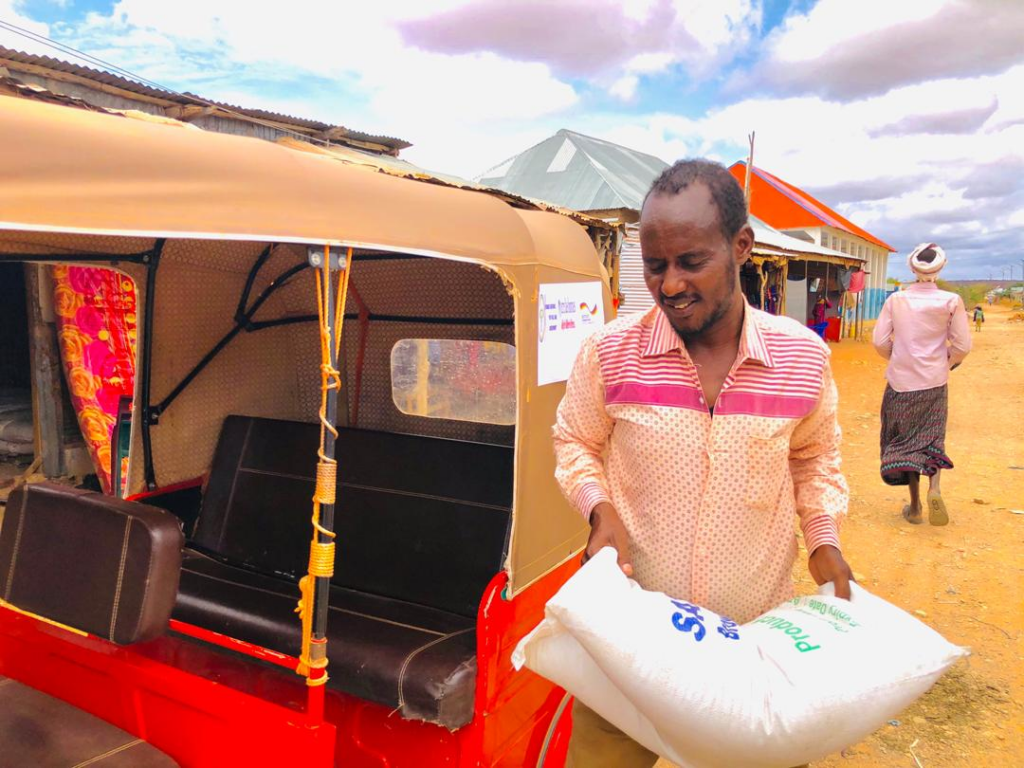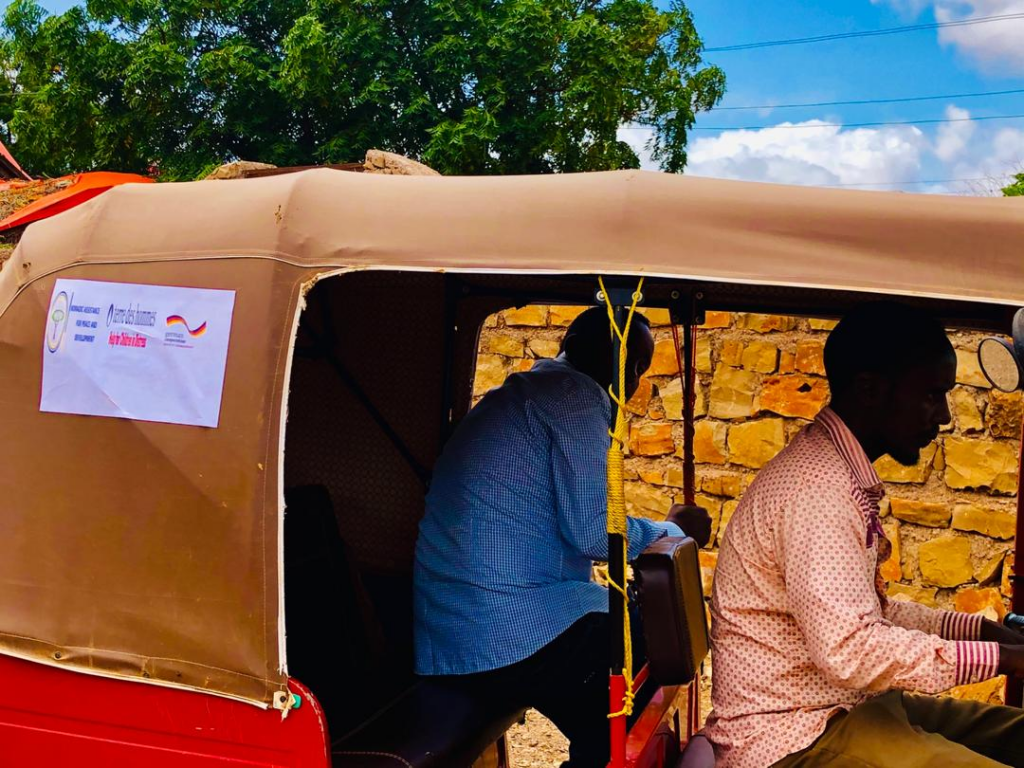Youth unemployment is one of the most critical socio-economic and political problems facing Africa, particularly the Horn of Africa. Young people face hostile economic environments where job markets dry up, and there are limited options. Due to the perennial droughts, conflicts, and perpetual insecurity in the area, the people of this region suffered the loss of their livelihoods and constant poverty, which was compounded by a lack of meaningful employment to assist them in regaining economically.
Meet Mohamed Hassan Dahir, a 35-year-old resident of Garbaharey district from the Shabeel Village host community

“After my father died, I had to drop out of school and take care of my family. I used to do manual work like offloading and loading to feed my family. At times I worked as a casual laborer in the construction sites. Income-generating activities are limited for unskilled workers like myself. The meager earnings I get from the casual jobs are barely enough to sustain my family household of 10 members,” Says Mohammed
The solution to unemployment lies in young people’s minds, who only need to be empowered to turn their ideas into the next big thing, creating new sustainable jobs with every enterprise.
To address this need NAPAD with funding from Federal Ministry of Economic Cooperation and Development (BMZ) and Terre d’ hermes (TDH), conducted business training for five existing youth and women groups to empower them to handle and run sustainable businesses that can help their household members and the community. The training was conducted in Garbaharey, and the groups provided in-kind support of their preferences in the form of Auto-rickshaws, refreshment distribution stock, and solar charging fridges.
“We got the training on managing the business, and my group received an auto-rickshaw (TUKTUK) as business support. All the members of the group operate the auto-rickshaw and we distribute the profits amongst ourselves,” says Mohammed. “The cost per person sharing is based on the distance the customer is going. Within the town, we charge between $1 to $1.5. In a day we get approximately $5 to $8. The profit I get I use to take care of my family expenses. My entire family and I are so grateful to NAPAD,” He continues.

The distribution of the in-kind support was organized in a public forum represented by the beneficiaries, elders, and local authorities. The leaders appreciated the efforts put in by NAPAD and thanked the donors for the intervention.
“I have never considered myself an entrepreneur. It is thanks to NAPAD that I have changed the way I see myself. As unskilled workers we now have a steady income and do not rely on aid,” says Mohammed. “The only challenge is that the beneficiaries are many in a group and therefore the profit is small in regards to the number of the members,” He continues.
Mohammed recommends that an additional tuk-tuk be provided to increase the group’s income.
